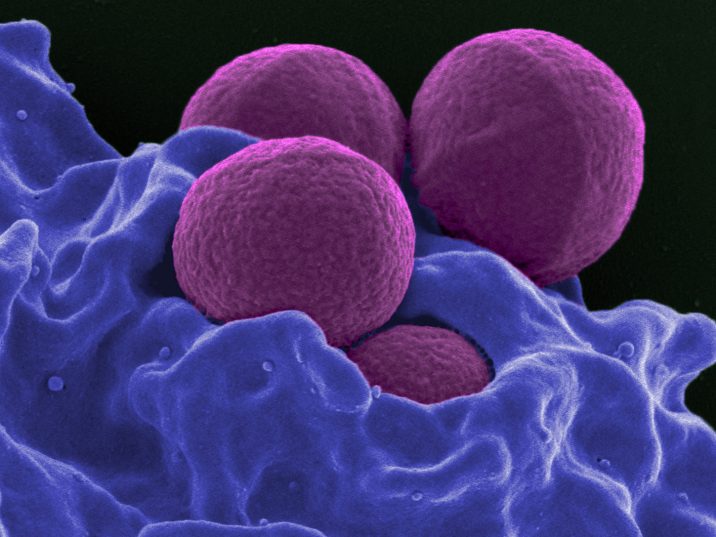You are here
Home 🌿 Cannabis Technology News 🌿 McMaster discovers cannabis compound may be weapon in fighting superbugs 🌿McMaster discovers cannabis compound may be weapon in fighting superbugs

A team of Ontario researchers have discovered that a cannabis-derived compound may be effective in killing drug-resistant bacteria.
Microbiologists from Hamilton, Ont.’s McMaster University explored the potential antibiotic properties of five cannabis-derived compounds. They discovered that CBG (cannabigerol) — the lesser-known sibling of more popular cannabinoids such as THC (tetrahydrocannabinol) and CBD (cannabidiol) — was capable of killing microbes such as methicillin-resistant Staphylococcus aureus (MRSA), a common but hard-to-treat superbug that is easily spread and commonly found in health care facilities.
Unlike THC, which is both psychoactive and intoxicating, and CBD, which is psychoactive but non-intoxicating, CBG is believed to be non-psychoactive.
Lab tests indicated the CBG destroyed not only MRSA microbes, but also the resulting “biofilms” that may form on medical implants and skin.
Based on its efficacy in lab tests, scientists tested CBG on MRSA-infected mice and found that the cannabinoid matched the efficiency of vancomycin, an antibiotic widely regarded as a final frontier in the fight against drug-resistant infections.

FILE: Biofilm of antibiotic resistant bacteria. Rod-shaped and spherical bacteria. Escherichia coli, Pseudomonas, Mycobacterium tuberculosis, Klebsiella, Staphylococcus aureus, MRSA. 3D illustration Getty Images/iStockphoto
As promising as the results may seem, however, McMaster microbiologist and lead author Eric Brown noted that while cannabinoids are “clearly great drug-like compounds,” far more research is necessary before the results can be tested on human patients or applied in medical settings.
“There is much work to do to explore the potential of the cannabinoids as antibiotics from the safety standpoint,” Brown told The Guardian.
That said, the results offer hope in a medical field that has become increasingly concerned with the population’s antibiotic resistance, as microbes have mutated to become immune to the effects of many common, previously effective antibiotics.
The study is now under peer review by the ACS Infectious Diseases journal, but has yet to be certified or published.
McMaster, in general, is no stranger to cannabinoid-related research; it is home to the Michael G. DeGroote Centre for Medicinal Cannabis Research in partnership with St. Joseph’s Healthcare Centre. Researchers associated with the centre have recently performed studies on the effects of cannabis smoke on lung cells, the safety of CBD, whether physicians should recommend replacing opioids with cannabis, and how genetic variation may contribute to different responses in medical cannabis.
420 Intel is Your Source for Marijuana News
420 Intel Canada is your leading news source for the Canadian cannabis industry. Get the latest updates on Canadian cannabis stocks and developments on how Canada continues to be a major player in the worldwide recreational and medical cannabis industry.
420 Intel Canada is the Canadian Industry news outlet that will keep you updated on how these Canadian developments in recreational and medical marijuana will impact the country and the world. Our commitment is to bring you the most important cannabis news stories from across Canada every day of the week.
Marijuana industry news is a constant endeavor with new developments each day. For marijuana news across the True North, 420 Intel Canada promises to bring you quality, Canadian, cannabis industry news.
You can get 420 Intel news delivered directly to your inbox by signing up for our daily marijuana news, ensuring you’re always kept up to date on the ever-changing cannabis industry. To stay even better informed about marijuana legalization news follow us on Twitter, Facebook and LinkedIn.




